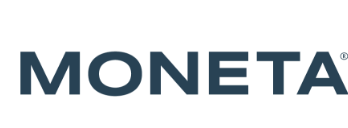The saying goes that there are two things certain in life: death and taxes. This past month reminds us that a close third is that a failed bank will create ample fear and anxiety for anyone conducting business with said bank. Add to that fear the amplification by social media, and fears can morph into varying degrees of panic.
The last month has brought that fear to the forefront as we saw the abrupt failures of Silicon Valley Bank and Signature Bank followed by perennial global player, Credit Suisse, entering into an agreement to be purchased by its domestic rival UBS. These events created much confusion, fear and consternation for banking clients and investors. Key to clients’ fears was simply, “Is my money safe at my bank?”
With Schwab an important partner of Moneta and our clients, we engaged in a chat with Schwab’s Chief Risk Officer, Nigel Murtagh. Murtagh is responsible for Schwab’s Enterprise Risk Management, working with the business to identify and navigate credit, market, and operational risk to support sustainable growth. His responsibilities include risk management for Charles Schwab Bank. Murtagh joined Schwab in 2000 and became chief credit officer in 2004. In 2009, his role expanded to include oversight of Schwab’s corporate risk management program.
Our conversation revolved around key questions clients may have, including the basics of how Schwab bank works, protections in place for depositors and investors, and concerns seen emanating in the media specific to Schwab.
Hosting the call from Moneta were members of our Enterprise Services Team: Mark Webster (Senior Investment Research Analyst), Amanda Barrale (Chief Platform Officer), and Tyler Rogers (Institutional Relationship Manager). Below are key takeaways from the chat. While representative of the call, they are not direct representations by Charles Schwab, Inc. and Moneta does not represent this as content officially published by Charles Schwab, Inc. or its affiliates:
- What does risk management at Schwab look like?
Nigel noted that risk management is a core component of what they do at Schwab. Beyond the normal on-going risk-management being handled by a variety of risk professionals, an independent risk management team reports to Nigel covers all the broad risks from the operational side, cyber-security, fraud, technology, compliance, model analytics and market-based elements such as credit risk, liquidity risk, and capital at risk. Additionally, the Schwab board of directors establishes qualitative risk parameters that guide Schwab’s strategy which the risk team monitors though quantitative metrics.
- What are the important differences between client investments at the Schwab broker dealer versus client assets held at the Schwab banks?
On the broker side, Nigel said the thing to remember is that the clients’ assets remain the clients. Securities owned by clients —such as stocks, bonds, mutual funds, exchange traded funds, or money market funds— and held at Schwab are the clients’ full-stop. The SEC’s Customer Protection Rule safeguards customer assets at brokerage firms by preventing firms from using customer assets to finance their own proprietary businesses. Clients’ fully paid securities are segregated from other firm assets and held at third party depository institutions and custodians such as the Depository Trust Company and Bank of New York. There are reporting and auditing requirements in place by government regulators to help ensure all broker-dealers comply with this rule. In the very unlikely event that Schwab should become insolvent, these segregated securities are not available to general creditors and are protected against creditors’ claims. Securities Investor Protection Corporation (SIPC) insurance is also available to help protect against the potential impact of fraud.
On the banking side, clients’ deposits are insured by the Federal Deposit Insurance Corporation (FDIC) up to $250,000 per depositor, per FDIC-insured bank, per ownership category. Amounts above that level are unsecured, which is where the risk level increases for depositors. That is, unless the government comes in as they did with Silicon Valley Bank and guarantees all deposits. To help provide some level of protection, Nigel said one should seek a bank that has high quality assets with low credit risk and high liquidity to accommodate potential elevated deposit outflows. Schwab seeks this profile by investing 85% of their assets in government or agency-backed securities. Additionally, Nigel noted that in comparison, most major banks have a majority of assets in multi-year residential and commercial loans with significant duration, varying credit quality and little liquidity.
- How do SIPC and FDIC differ in terms of asset protection for investors and depositors?
Nigel indicated that FDIC focuses on protecting customers against the loss of deposit accounts (such as checking and savings) in FDIC-insured banks. The basic FDIC insurance limit is currently $250,000 per account holder per insured bank for deposit accounts and $250,000 for certain retirement accounts deposited at an insured bank. These insurance limits include both principal and accrued interest. The FDIC does not insure money invested in stocks, bonds, mutual funds, life insurance policies, annuities, municipal securities, or money market funds, even if these investments were bought from an insured bank.
In contrast, Nigel said SIPC does not provide blanket coverage. Instead, SIPC protects customers of SIPC-member broker-dealers against the loss of cash and securities – such as stocks and bonds. Coverage is up to $500,000 per customer for all accounts at the same institution, including a maximum of $250,000 for cash. Nigel noted that in practice, the $500,000 goes much further than it seems, since missing assets are prorated as a percentage of total assets missing versus total assets available at the broker dealer.
- If Schwab were to file for bankruptcy in an extreme scenario, what would happen to the managements of Schwab ETFs and mutual funds?
In this situation, Nigel said the current portfolio management team for those funds would be kept in place and would likely move to a new broker dealer as part of the bankruptcy proceedings. It would be up to that new broker dealer to determine whether they replace the portfolio management team. Importantly though, the ownership in the fund themselves remains the clients since client investments are segregated from the Schwab balance sheet.
- Should clients be concerned about a potential gating of Schwab money market funds?
Schwab likely would not act to gate a money market fund without first consulting with regulatory authorities if they were considering any fees or gates being imposed on money market funds. Additionally, Nigel stressed Schwab itself has not implemented or come close to implementing any kind of gating features on their money market funds.
To be sure, per official prospectuses, all Schwab Money Funds with the exception of Schwab Government Money Fund, Schwab U.S. Treasury Money Fund, Schwab Treasury Obligations Fund, Schwab Government Money Market Portfolio, and Schwab Retirement Government Money Fund may impose a fee upon the sale of fund shares or may temporarily suspend one’s ability to sell shares if the Fund’s liquidity falls below required minimums because of market conditions or other factors. Additionally, unlike bank deposits, an investment in the Schwab Money Funds is not insured or guaranteed by the FDIC or any other government agency.
- Speak about the liquidity of Schwab’s balance sheet and why clients should not be concerned about getting their cash back.
Nigel contrasted their portfolio with other banks. He noted standard commercial banks make and hold commercial real estate loans. Commercial real estate in downtown cities today is under-occupied and interest rates are higher, so the value of those loans have declined. Additionally, there are liquidity and credit risks with the portfolio of commercial loans. Schwab instead holds a portfolio of government bonds. These do not have credit risk, repayment risk or liquidity risk. These can also be pledged to the Fed through government programs for additional liquidity, which they have done.
Additionally, Nigel pointed out that Schwab has access to significant liquidity, including an estimated $100 billion of cash flow from cash on hand, portfolio-related cash flows, and net new assets they anticipate realizing over the next twelve months. There is also nearly $8 billion in potential retail CD issuances per month and $300 billion of incremental capacity through government programs. Nigel stressed this provides enough liquidity without having to sell bonds if all brokerage clients wanted to pull their money out.
- Given concerns have picked up due to the failure of Silicon Valley Bank, please compare the portfolio management of Schwab’s bank asset portfolios with what was being done at Silicon Valley
Nigel noted that Silicon Valley Bank had very high levels of uninsured deposits of 80-90% which is in stark contrast to Schwab’s < 20% uninsured. The former faced a distinct risk of a “bank run” due to client fear of losing access to their deposits which are not covered by FDIC. He noted out of the top 100 banks, Schwab has one of the lowest levels of uninsured deposits, which is a very different structure than what’s going on across the industry overall and highlights Schwab’s conservative structure relative to the broader industry.
Schwab has a different model given it is a broker-dealer with a banking side. Their deposits come from transactional cash in clients’ brokerage accounts that is swept to their banks. They use about 10% of that cash to fund loans to existing clients and with the remaining 90% they buy securities – the vast majority of which are backed by the U.S. Government. With rates moving up, the fair value of all fixed rate assets – loans and securities – has declined. However, because Schwab’s securities are very high quality, they fully expect their securities to reach par at maturity, which means the unrealized “paper” losses will decrease over time. Because a much higher percentage of their assets are securities – and traditional bank loans are not disclosed the same way – their paper losses may appear larger than those of traditional banks. But that assessment lacks the appropriate context. In reality, their portfolio has less credit risk and is actually less sensitive to changes in interest rates than many large banks.
These “paper losses” are unrealized and would only be realized if Schwab had to sell those securities. The profile of their depositors is very different from regional banks. Given their significant access to sources of liquidity, there is a near-zero chance Schwab would need to sell any of their portfolio prior to maturity. That would be akin to assuming a large retail bank would sell a substantial portion of its loan portfolio.
- What is the outlook for changes in FDIC coverage?
Nigel indicated he and his peers are in regular contact with Washington given there is a lot of discussion about increasing the FDIC limit at some point. There is some pushback because if they raised the limit to $500,000, for instance, the percentage of depositors affected is very small. It is a question as to whether the government should step in to provide guarantees for the top 5% or the top 1% of the population, particularly when those individuals have a variety of other options to place their cash. He believes regulators will probably bump up the limit a bit, but avoid blanket coverage for all.
The discussion with Nigel provided a comprehensive insight into the protocols and protections Schwab undertakes to help protect its clients. The fear of losing access to one’s own money is clearly understandable and Schwab certainly runs its enterprise with full awareness of this. However, not all banks are created the same nor are their business models the same. While no investment or banking institution is without risk, we continue to maintain the highest level of confidence in the safety of client assets held at Schwab.
For further information on Schwab’s various policies, please see the following informational links:
- https://www.schwab.com/legal/account-protection
- https://www.schwabmoneywise.com/essentials/understanding-fdic-and-sipc-insurance
- https://www.aboutschwab.com/how-schwab-protects-client-assets
- https://www.aboutschwab.com/updated-our-most-recent-perspective-on-industry-events
© 2023 Advisory services offered by Moneta Group Investment Advisors, LLC, (“MGIA”) an investment adviser registered with the Securities and Exchange Commission (“SEC”). MGIA is a wholly owned subsidiary of Moneta Group, LLC. Registration as an investment advisor does not imply a certain level of skill or training. The information contained herein is for informational purposes only, is not intended to be comprehensive or exclusive, and is based on materials deemed reliable, but the accuracy of which has not been verified.
Trademarks and copyrights of materials referenced herein are the property of their respective owners. Index returns reflect total return, assuming reinvestment of dividends and interest. The returns do not reflect the effect of taxes and/or fees that an investor would incur. Examples contained herein are for illustrative purposes only based on generic assumptions. Given the dynamic nature of the subject matter and the environment in which this communication was written, the information contained herein is subject to change. This is not an offer to sell or buy securities, nor does it represent any specific recommendation. You should consult with an appropriately credentialed professional before making any financial, investment, tax or legal decision. An index is an unmanaged portfolio of specified securities and does not reflect any initial or ongoing expenses nor can it be invested in directly. Past performance is not indicative of future returns. All investments are subject to a risk of loss. Diversification and strategic asset allocation do not assure profit or protect against loss in declining markets. These materials do not take into consideration your personal circumstances, financial or otherwise.







